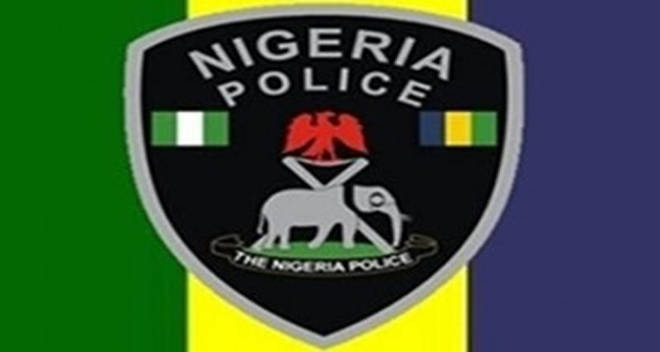Helpless Police? Roles of security agents during elections
In November 2018, myself along with other speakers were invited to speak on 2019 elections during an interfaith dialogue of International Centre for Interfaith, Peace and Harmony (ICIPH). I was asked to talk about the roles of security agents. The text below is an edited version. We now have 84,004,084 voters registered by INEC. Eight-four […]

In November 2018, myself along with other speakers were invited to speak on 2019 elections during an interfaith dialogue of International Centre for Interfaith, Peace and Harmony (ICIPH). I was asked to talk about the roles of security agents. The text below is an edited version.
We now have 84,004,084 voters registered by INEC. Eight-four million voters.
That’s a huge number. Indeed, INEC chairman Prof. Mahmood Yakubu, said it is the largest database of citizens in Africa and one of the largest voter registers in the world.
However, A large number sometimes keeps a bad company. In fact, Since the preparations for the 2019 elections started many people have been concerned about the safety and security of the citizens and of the election officials.
The Sultan of Sokoto expressed such concern late last year; and other religious leaders have followed suit.
Also, the heads of government agencies have attempted to give guidance and directions to the security agents.
The National Security Adviser, Monguno, for example said the “NSA is going to descend very heavily on security agencies which, as a consequence of their inability to carry out their functions, allow lives to be lost unnecessarily…I want to notify all security agencies that I will also not tolerate collusion or aiding and abetting of criminal elements by security agencies in the process.”
This week, while speaking at the quarterly consultative meeting on the Inter-Agency Consultative Committee on Election Security (ICCES), INEC chairman, Prof. Yakubu said that we needed a new security architecture for the elections consistent with the Electoral Act 2010.
“It is an opportunity to hear from the security agencies on your preparations so far,” Prof Yakubu said, “however, learning from the experience of some of the 195 off-season elections conducted since 2015, it is pertinent to draw our attention to the need for a different approach to the deployment of security forces during elections.”
While INEC chairman used “195 off-season elections conducted since 2015” to make his point, the security agents, especially those from the police, have been known to meddle with our elections.
For instance, the National Human Rights Commission’s technical study group report on 2007 in Edo State (to cite just one case) stated that the court established that “the evidence of the witness is that police officers were in fact, doing the shooting, the thumb-printing or the ballot-stuffing.”
Also, European Union Election Observation Mission team led by Max van den Berg said the same thing about the general election of that year stating, “the election fell far short of basic international standards.”
Yet, according to the law, the Nigeria Police remains the chief security agency for our elections. Prof. Yakubu reiterated this during ICCES meeting on Wednesday: “The Nigeria Police Force remains the lead agency for election security. Other security agencies will play a supportive role to the Nigeria Police. However, we need a new security architecture for 2019 consistent with the provision of Section 29 (3) of the Electoral Act 2010 (as amended).”
Accordingly, the presence of the police and other security agents should reassure the voters. But that has not been the case. Rather, because of the degenerate role they have elected for themselves, the citizens view them with suspicion.
During the primary elections of the APC in 2018, I watched as the police, with their guns, watched helplessly when thugs disrupted the queues and took away the election materials. I also watched as officers of the Civil Defence went to a politician who was buying votes to ask for their own money instead of arresting him.
If nothing is done to fix this menace, we are starring at violent elections this year – God forbid.
So how can we have free and fair elections in 2019?
The answer lies in going back to the basics and reminding ourselves (both the voters and security agents) of the roles of the police during elections.
What are those roles? From the laws and the available records, the security agents are to do only two things: protect election officials and ensure the smooth running of the elections.
When we break that down, we get five roles that the men in uniform should play:
One, to provide protection so that three things can be done smoothly at the polling areas: accreditation, voting and collation.
Two, protect election officials at all levels.
Three, ensure peace and peaceful atmosphere at the polling areas.
Four, arrest at the instruction of the presiding officer (who is the chief security officer) anyone deemed to be interfering with the smooth conduct of the election.
Five, accompany the presiding officer, collation officer and the returning officers while conducting their election duties.
The above roles are straight forward enough. And if followed, will minimise our problems during elections. The voters as well as the security agents should be educated concerning these roles
